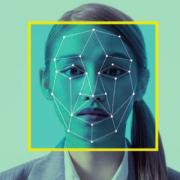
































The UK Home Office minister Chris Philp is encouraging police forces to increase their use of LFR (live facial recognition) software to track down offenders. Philp has set a target of exceeding 200,000 searches of still images against the police national database using facial recognition technology. In addition, Philp plans to make UK passport photos searchable by the police and integrate data from various national databases.
The recent deployment of LFR by Essex police on high streets in Chelmsford and Southend has already led to the capture of serious criminals, including those involved in murder and sexual offences. However, a cross-party group of MPs and peers has called for an immediate stop to LFR surveillance, describing it as 'dangerous authoritarian surveillance' and a severe threat to civil liberties in the UK. The joint statement was backed by 31 groups, including Big Brother Watch, Liberty, Amnesty International, and the Race Equality Foundation. Former Brexit secretary David Davis, Liberal Democrat leader Sir Ed Davey, Green MP Caroline Lucas, and former Labour attorney general Shami Chakrabarti also backed the call to halt LFR deployment.
The Home Office, however, defends the use of LFR technology, stating that it operates within the framework of data protection, equality, and human rights laws. Despite the ongoing debate, the policing minister states that LFR technology plays a significant role in law enforcement efforts in the UK and supports using AI technology in policing.
 Tags quentes :
Inteligência artificial
Segurança cibernética
Direitos humanos
Tags quentes :
Inteligência artificial
Segurança cibernética
Direitos humanos